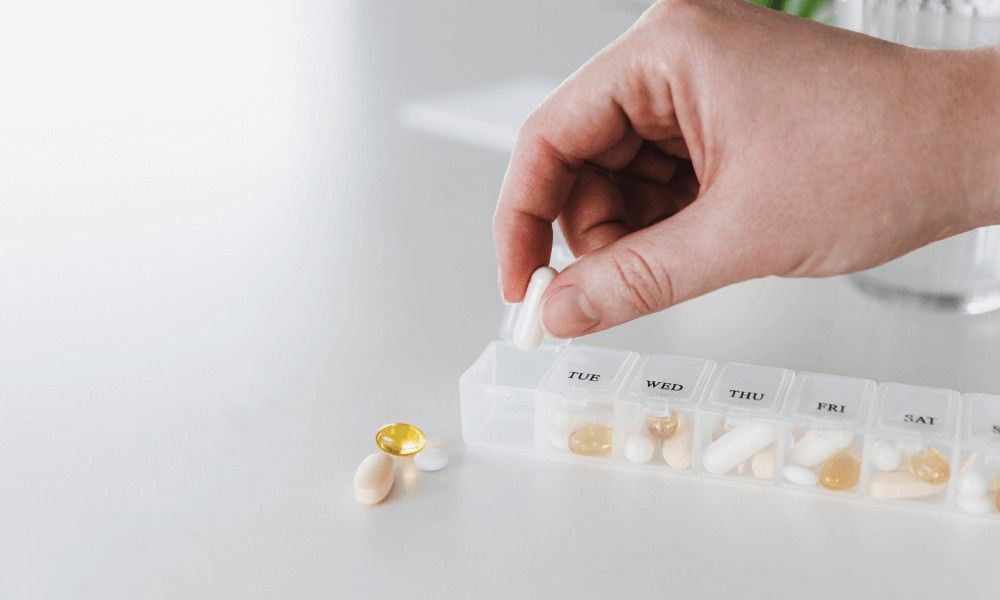Buscopan: Uses, Side Effects, Dosage, Interactions And More
Buscopan

How Does Buscopan Work?
Buscopan operates unlike typical pain medications. This quaternary ammonium derivative stays out of your central nervous system. The medication directly relaxes smooth muscles in your gastrointestinal, biliary, and genitourinary tracts through its spasmolytic action. Your body responds to this peripheral anticholinergic action through two mechanisms: blocked ganglia within the visceral wall and anti-muscarinic activity. The medication's inability to cross the blood-brain barrier protects you from central nervous system side effects.
Uses of Buscopan
Buscopan excels at treating muscle spasms. Doctors prescribe it to:
Relieve abdominal cramps and spasms in the gut
Ease bladder spasms and urinary tract discomfort
Manage irritable bowel syndrome symptoms including pain, bloating, and bowel irregularities
Help with period pain
The medication proves most effective in the lower gastrointestinal tract compared to the upper regions.
How & When to Take Buscopan?
Adults and children over 12 should take one tablet three times daily for stomach cramps. The dosage can increase to two tablets four times daily if needed.
Children between 6-11 years need one tablet three times daily.
Take Buscopan tablets whole with water and never break, crush or chew them.
The tablets work with or without food since they rarely upset your stomach.
Patients with doctor-diagnosed IBS should begin with one tablet three times daily and adjust as needed.
What Are the Side Effects of Buscopan?
The medication suits most people, but some side effects may occur:
Blurred vision
Constipation
Increased heart rate
Rare but serious side effects include:
Painful red eyes with vision loss
Difficulty urinating
Allergic reactions - breathing difficulties, swollen lips/mouth/throat, or sudden confusion.
Can I Take Buscopan Daily?
You should only take Buscopan every day if your doctor tells you to. Don't use it for more than two weeks without checking with a doctor. If your symptoms change, get worse, or stick around for over two weeks, see your doctor to make sure there's nothing else going on.
What Precautions Should Be Taken When Using Buscopan?
You should be careful with Buscopan. Do not take this medicine if you have:
Narrow-angle glaucoma (an eye problem)
Myasthenia gravis (a rare muscle weakness condition)
Intestinal blockage or paralytic ileus
Megacolon (very enlarged bowel)
You should talk to your doctor before taking Buscopan if you have:
Tachycardia or other heart problems
Problems urinating, especially when you have prostate problems
Constipation or fever
Limited information exists about Buscopan's effects on the foetus or its presence in breast milk, so use it carefully during pregnancy and breastfeeding.
What If I Missed a Dose?
Take the dose as soon as you remember it. Skip the missed dose and stick to your regular schedule if it's almost time for your next one. Never take two doses at once or an extra dose to make up for a missed one. An alarm might help you remember your medication schedule.
What If I Overdose?
One extra dose of Buscopan likely won't harm you, but ask your doctor if you're worried. Call emergency services right away if you take two or more extra doses.
Overdose symptoms may include drowsiness, dry mouth, urinary difficulties, reddening of the skin, decreased gastrointestinal movement, rapid heartbeat, and vision problems.
Drug Interactions
Buscopan can interact with many medications and affect how well they work:
Antidepressants such as amitriptyline
Antihistamines (allergy medications)
Asthma medications like salbutamol, ipratropium, and tiotropium
Heart medicines such as quinidine or disopyramide
Mental health medications including clozapine or chlorpromazine
Motion sickness medicines like domperidone or metoclopramide
Other IBS remedies
Parkinson's disease medication like amantadine
Dosage for Buscopan
Each Buscopan tablet has 10mg of hyoscine butylbromide.
The dosage for stomach cramps or period pain is:
Adults and children over 12 years: 1 tablet three times daily, up to 2 tablets four times daily if needed
Children aged 6-11 years: 1 tablet three times daily
For doctor-diagnosed IBS:
Adults and children over 12 years: 1 tablet three times daily, up to 2 tablets four times daily if needed
Buscopan vs Dicyclomine
Feature | Buscopan | Dicyclomine |
Composition | Active ingredient is hyoscine butyl bromide | Active ingredient is dicyclomine hydrochloride |
Uses | Painful stomach cramps linked to your digestive system, bladder, and uterus | Relieves abdominal pain and cramps caused by conditions like irritable bowel syndrome and intestinal spasms |
Typical Dosage | 1-2 tablets, up to 4 times daily | 20-40mg, 4 times daily |
Side Effects Dry mouth |
|
|
Best For | Acute, self-limiting episodes with rapid onset | Daily symptoms, especially after meals |
FAQs
What is Buscopan used for?
Buscopan helps relieve painful stomach cramps, particularly those connected to irritable bowel syndrome (IBS). On top of that, it eases bladder cramps and period pain.
How does Buscopan work?
This antispasmodic medicine relaxes the muscles in your digestive system and bladder. The medication targets smooth muscles in these areas and reduces wave-like contractions that cause pain. Pain from cramps usually eases within 15 minutes after you take it.
How should I take Buscopan?
Your doctor's advice or package instructions should guide your usage. Take the tablets whole with water - they shouldn't be broken, crushed or chewed. The medicine works well with or without food since it rarely causes stomach upset.
Can Buscopan be taken during pregnancy or breastfeeding?
Research about Buscopan's use during pregnancy remains limited, so doctors rarely recommend it despite no known harmful effects. Breastfeeding mothers can safely use it because very small amounts pass into breast milk.
Is Buscopan safe to take with other medicines?
Some medications and herbal remedies can interact with Buscopan. So, tell your doctor about all ongoing medicines.
What are the common side effects of Buscopan?
Side effects aren't common, but some people might experience dry mouth, constipation, or blurred vision.
